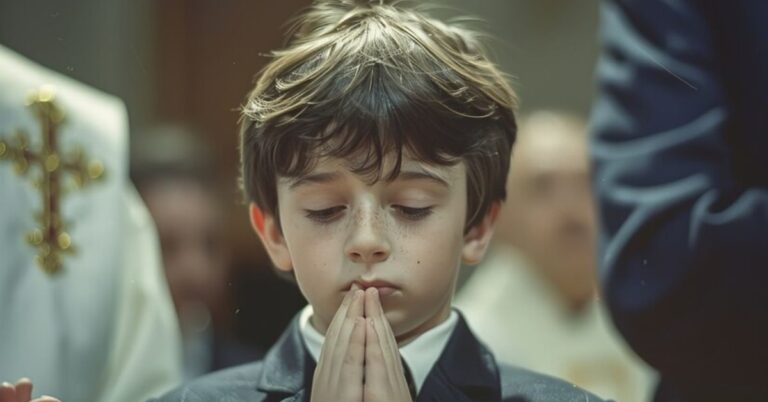Prayer before class is a practice deeply ingrained in many educational institutions worldwide. It serves as a moment of reflection, preparation, and communal bonding before delving into academic pursuits. While rooted in religious traditions, the practice has evolved over time to accommodate diverse beliefs and values. This article explores the significance, benefits, and considerations of incorporating prayer before class in educational settings.
Historical Context
The tradition of prayer before class traces its roots back to ancient civilizations, where scholars and students alike invoked blessings from deities for wisdom and guidance. Over the centuries, this practice evolved, intertwining with various religious and cultural traditions. In modern times, prayer before class continues to hold significance, albeit in a more diverse and inclusive manner.
Opening prayer for class
Lord, we offer to you our class today. We pray that through your Divine Guidance, We would learn how to listen attentively to the inputs of our teacher. May we appreciate her effort in imparting her knowledge to us.
Benefits of Prayer Before Class
Mental Preparation
Prayer before class provides students with a moment to center themselves mentally, allowing them to focus their thoughts and intentions on the upcoming learning tasks. This mental preparedness can enhance concentration and cognitive abilities, leading to improved academic performance.
Spiritual Grounding
For many students, prayer before class offers a sense of spiritual grounding and connection to something greater than themselves. Whether through religious rituals or personal affirmations, this practice fosters a sense of inner peace and resilience, which can be invaluable in navigating the challenges of academic life.
Community Bonding
Prayer before class also fosters a sense of community and belonging among students and educators. Coming together to engage in a shared moment of reflection promotes empathy, mutual support, and understanding, strengthening the bonds within the academic community.
Different Forms of Prayer
Prayer before class can take various forms, catering to the diverse beliefs and preferences of students and educators alike. While some may choose to recite traditional religious prayers, others may opt for secular affirmations or mindfulness exercises. The key is to create a welcoming and inclusive environment where all individuals feel comfortable expressing their beliefs or values.
How to Incorporate Prayer Before Class
Establishing a Routine
Educators can incorporate prayer before class by establishing a consistent routine, such as beginning each session with a brief moment of reflection or meditation. This routine helps set the tone for the learning environment and encourages students to approach their studies with mindfulness and intentionality.
Inclusive Practices
It’s essential to ensure that prayer before class is inclusive of all religious and cultural backgrounds present in the academic community. Educators should be mindful of diverse beliefs and practices, offering alternative options for students who may not wish to participate in traditional prayers.
Addressing Diverse Beliefs
Open dialogue and communication are crucial in addressing diverse beliefs and preferences regarding prayer before class. Educators should create opportunities for students to share their perspectives and experiences, fostering mutual respect and understanding among classmates.
Addressing Challenges and Concerns
Separation of Church and State
In public school settings, the incorporation of prayer before class must adhere to legal guidelines regarding the separation of church and state. Educators should ensure that any religious practices are voluntary and respectful of diverse beliefs, avoiding the promotion of any specific faith or denomination.
Respect for Different Beliefs
It’s essential to foster a culture of respect and tolerance for different beliefs and perspectives regarding prayer before class. Educators should be mindful of students’ individual rights and choices, ensuring that no one feels pressured or marginalized based on their religious or philosophical beliefs.
Legal Considerations
Educators should familiarize themselves with the legal considerations surrounding prayer before class, particularly in public school settings. Consulting with legal experts or school administrators can help ensure compliance with relevant laws and regulations while respecting the rights and freedoms of all individuals involved.
Success Stories and Testimonials
Numerous educators and students have shared positive experiences and testimonials regarding the benefits of prayer before class. From improved academic performance to enhanced well-being, many attribute their success in school to the practice of prayer or mindfulness before engaging in learning activities.
Conclusion
Prayer before’class serves as a powerful tool for enhancing the academic experience, promoting mental preparedness, spiritual grounding, and community bonding. By incorporating inclusive practices and addressing diverse beliefs, educators can create a supportive learning environment where all students feel valued and respected.
FAQs
- Is prayer before cla’ss allowed in public schools?
- While public schools must adhere to legal guidelines regarding the separation of church and state, some forms of voluntary prayer or meditation may be permitted if conducted in a respectful and inclusive manner.
- How can educators ensure inclusivity when incorporating prayer?
- Educators can promote inclusivity by offering alternative options for prayer or reflection, respecting diverse beliefs, and creating a welcoming environment where all students feel valued and respected.
- Can students opt out of participating in class prayers?
- Yes, students have the right to opt out of participating in class prayers or religious activities if they choose to do so. Educators should respect students’ individual beliefs and choices, ensuring that no one feels coerced or pressured to participate.
- Are there any scientific studies supporting the benefit’s of prayer before class?
- While scientific research on the benefits of prayer before’class may be limited, studies on mindfulness and meditation have shown positive effects on cognitive function, stress reduction, and overall well-being, which may indirectly benefit academic performance.
- What are some alternative practices for students who do not wish to participate in prayer?
- Alternative practices may include silent reflection, mindfulness exercises, or engaging in personal affirmations or intentions. Educators can provide options for students to participate in non-religious activities that promote focus, relaxation, and mental clarity before class.

